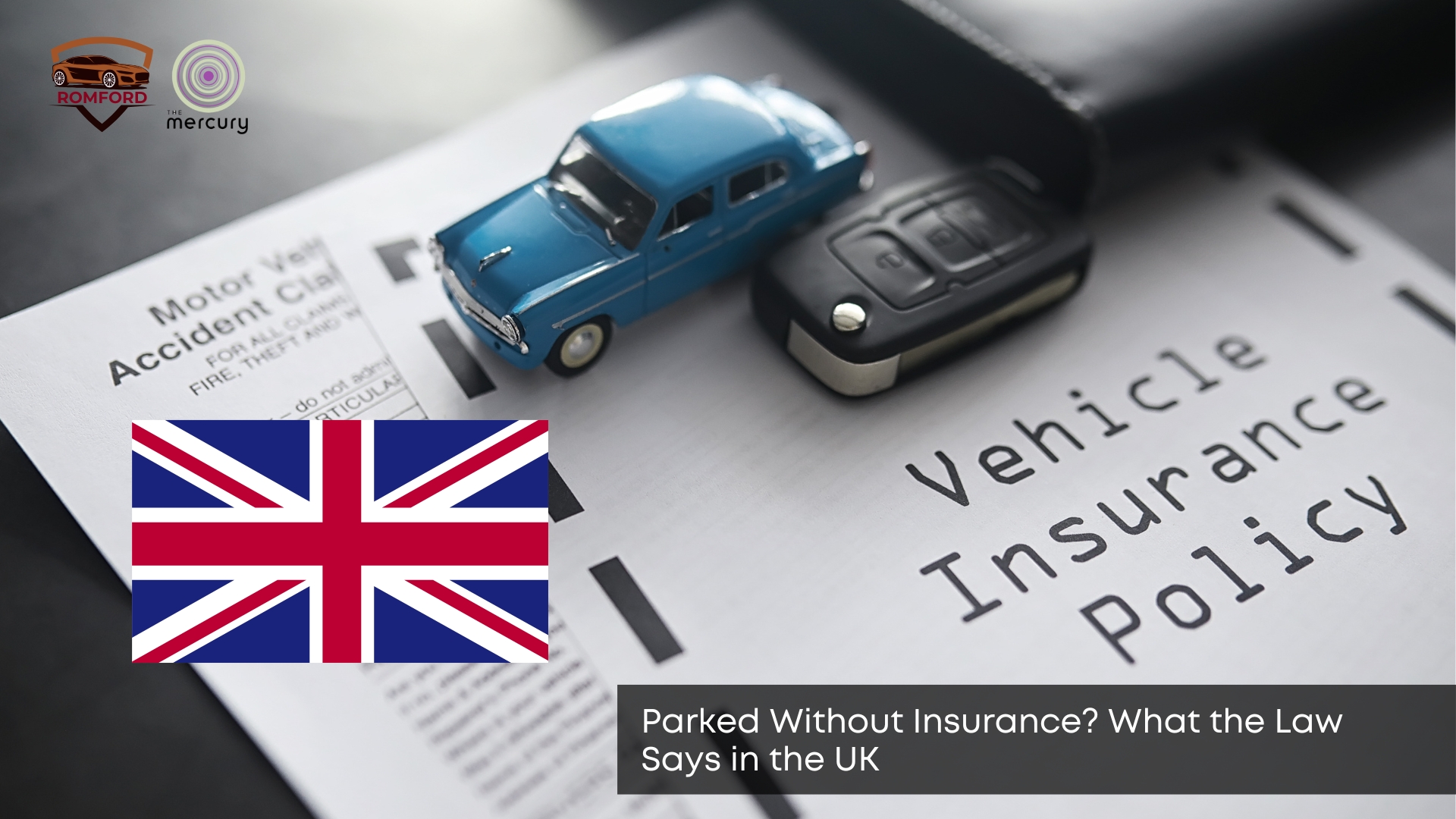Many drivers assume insurance is only needed when a car is in motion. But in the UK, the law says otherwise. Even if your vehicle is parked and not in use, it still requires valid insurance. Failing to follow the rules can result in serious fines or the seizure of your vehicle. To stay safe, it’s important to understand how the law treats uninsured parked vehicles. That understanding starts with the most important legal question.
Is It Illegal to Park Without Insurance in the UK?
Yes, it is generally illegal to keep a vehicle parked without insurance in the UK. According to the law, all vehicles must be insured unless they have been officially declared off the road. Even if you don’t drive the car, it still needs to be covered, provided it is kept on public or private land. This rule applies whether you leave your car outside your home or in a public car park. The rule becomes even stricter under a policy known as the Continuous Insurance Enforcement.
What Does the Continuous Insurance Enforcement (CIE) Rule Mean?
The Continuous Insurance Enforcement (CIE) rule requires that your vehicle is always covered by insurance unless it’s declared off-road with a SORN. Introduced in 2011, the rule aims to reduce the number of uninsured vehicles. CIE allows the DVLA and Motor Insurance Database (MID) to track all registered vehicles. If a vehicle is found to be uninsured and not declared off-road, you could face automatic penalties. This brings us to some important situations where exemptions may apply.
Are There Any Exceptions to the Insurance Requirement?
Yes, there is one main exception: if your vehicle is declared off-road using a Statutory Off-Road Notification (SORN). With a SORN, you don’t need insurance as long as the car is kept on private land and is not used on public roads. Other exemptions include certain historic vehicles or cars held by car dealers, but these are rare. If you’re unsure, it’s safer to assume insurance is still needed. But what if you take the risk and leave the car uninsured?
What Happens If You Park a Car Without Insurance?
Suppose your car is parked without insurance, and no SORN (Statutory Off Road Notification) is in place. In that case, you may receive a warning letter or even a fine. The DVLA might issue a fixed penalty notice of £100, and the police could impound your vehicle. In more serious cases, you might be taken to court and fined up to £1,000. For many, the risk isn’t worth it. And even if you think no one will notice, enforcement is more advanced than you might expect.
Can You Get Caught Even If the Car Isn’t Driven?
Yes, enforcement agencies can catch you even if your car never leaves its spot. Cameras, number plate recognition, and insurance database checks enable authorities to detect uninsured vehicles easily. It doesn’t matter if the vehicle moves or not—the law still applies. Because of this, the only safe way to avoid trouble is to either insure your vehicle or make it officially off-road. That’s where SORN comes in.
What Is a Statutory Off-Road Notification (SORN)?
A Statutory Off-Road Notification (SORN) is a formal way to tell the DVLA that your car won’t be used on public roads. Once declared, your car is exempt from insurance and tax, but it must be kept on private property. You can apply online, by post, or over the phone, and the declaration remains in effect until you cancel it. Declaring SORN is free and protects you from penalties, especially useful if you’re storing your car for a long period. But how do the authorities track these vehicles in the first place?
How Do the Police and DVLA Monitor Uninsured Vehicles?
The DVLA and police utilise the Motor Insurance Database (MID) to monitor insured vehicles in real-time. Automatic Number Plate Recognition (ANPR) cameras can quickly check if a vehicle is listed on the database. These checks are carried out daily across the UK on roads, in car parks, and even on residential streets. If your vehicle is flagged as uninsured, action can be taken within days. For more practical tips, see our Romford car park advice page. Knowing the possible consequences helps highlight why staying covered matters.
What Are the Penalties for Breaking the Insurance Law?
Penalties for parking without insurance include fines, court appearances, and even having your car clamped or destroyed. A first offence can result in a £100 fixed penalty, but this can rise to £1,000 if ignored. You may also get six penalty points on your driving licence. And if your car is seized, you’ll have to pay release fees and provide valid insurance to retrieve it. That’s why many people look into temporary solutions as a stopgap.
Is Temporary or Day Insurance a Solution for Parked Cars?
Yes, temporary car insurance can be a short-term fix if you only need cover for a few days or weeks. Many insurers offer day or week-long policies that meet legal requirements and are listed on the MID, making them useful for short-term parking in Romford. This is ideal for cars you’re about to sell or move soon. Ensure the policy is active and properly recorded. If you’re unsure whether your insurance is valid, it’s best to check immediately.
What Should You Do If You’re Not Sure About Your Coverage?
If you’re unsure whether your car is insured, check the Motor Insurance Database (askMID) online. You can enter your registration number and see if your policy is active. It’s free to check your vehicle and could save you from serious penalties. If your car is not listed in the database, contact your insurer immediately to confirm that your details are up to date. Avoiding mistakes now can save a lot of stress later on.
How to Avoid Trouble With Uninsured Parking
To stay safe, always keep your insurance valid or declare your vehicle off-road with a SORN. Use online tools to check your insurance status and renew in advance when possible. If your car is rarely driven, consider low-mileage or temporary insurance options to save money. Keep proof of insurance handy and ensure your details are correct with the DVLA and your insurer. When it comes to staying on the right side of the law, peace of mind is often just a click away. A well-kept space also matters, see signs that show when to repaint your car park.


Leave a Reply